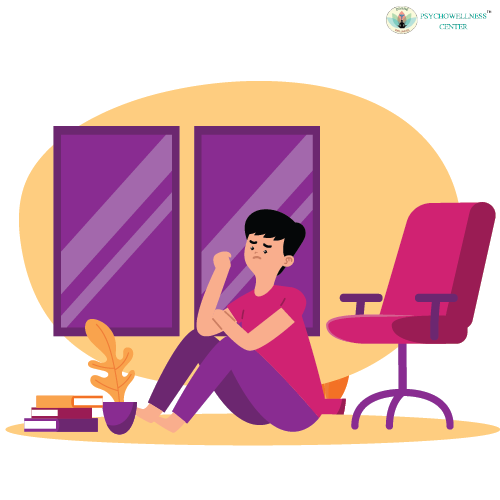In this blog, we will learn about post-grad depression and how professional help from top psychologists in delhi can help. First, we will understand post-grad depression.
Post-graduation depression is a mental health condition that some people experience as they transition from the organized setting of college or university to the “real world.” This era of change and uncertainty can be accompanied by a variety of tough emotions, including feelings of purposelessness, identity crises, unmet expectations, loneliness, and difficulty finding a fulfilling job path. The absence of established academic routines and social networks can leave graduates feeling disoriented, leading to symptoms of depression such as chronic melancholy, loss of interest, changes in sleep and food, and feelings of worthlessness.
Symptoms of Post-Graduate Depression
Depression can have a negative impact on a person’s emotional, intellectual, and physical health. Symptoms include:
– Sorrow
– Worry and anxiety
– Sensations of emptiness
– Negative emotions
– Pessimism
– Hopelessness
– Frustration
– Restlessness
– Lost interest in previously appreciated activities
– Reduced energy levels
– Memory loss
– Difficulty paying attention
– Decision-making issues
– Sleep problems
– Appetite or weight fluctuations
– Physical symptoms such as pain and stomach upset
– Suicidal thoughts or attempts
How to Cope with Post-Grad Depression
Coping with post-graduate depression can be a challenging but important process because it helps maintain overall well-being, develop crucial life skills for the future, and promote a healthy work-life balance. Addressing this transition period equips recent graduates with the resilience and self-awareness needed to thrive in the next chapter of their lives, preventing the depression from interfering with their personal and professional goals. Here are some specific strategies that will assist you in handling this adjustment:
1. Seek Professional Help:
Talking with a professional counselor or therapist who specializes in mental health concerns for young people can be quite beneficial. They can offer evidence-based therapies like cognitive-behavioral therapy (CBT) to help you establish healthy coping mechanisms and manage your depression and anxiety. Look for the therapists in delhi or local therapists who have experience working with recent graduates or who specialize in quarter-life crises and adjustments. They’ll have a deep understanding of the unique challenges you’re facing. Don’t be afraid to ask for help; there’s nothing wrong in doing so at this transitional moment.
2. Develop a Routine:
Establishing a daily structure and schedule can provide a much-needed sense of stability and purpose during this time of uncertainty. Incorporate regular sleep patterns, mealtimes, exercise, and leisure activities into your routine. This can help regulate your body’s natural rhythms and prevent the exacerbation of depressive symptoms. Having a predictable routine can also make it easier to stay on top of responsibilities and avoid feeling overwhelmed.
3. Stay Connected:
Maintaining strong social relationships with friends, family, and previous classmates can be an effective treatment for the isolation and loneliness that frequently accompany post-graduate depression. Make an effort to regularly connect with your support network, whether through video calls, in-person meetups, or joining local groups. Building new social connections can also be beneficial, as it helps you expand your support system and find a sense of community.
4. Practice Self-Care:
Prioritize both your mental and physical health by engaging in consistent routines that nourish your spirit, body, and mind. Engage in regular physical activity, such as exercising, yoga, walking, sports, or other fitness classes. Physical activity and muscular relaxation can boost your mood and reduce stress. Explore relaxation techniques like meditation, deep breathing, or journaling to help manage anxiety and promote emotional regulation. Ensure you’re getting enough sleep, eating a balanced diet, and taking breaks when you need them.
5. Set Achievable Goals:
Recent grads may feel disoriented or uncertain about their future. To combat this, develop attainable, short-term goals that give you a sense of purpose and success. To avoid feeling overwhelmed, break down larger ambitions into smaller, more achievable ones. Celebrate your achievements and tiny victories along the way to increase your self-esteem and inspiration.
6. Seek Career Guidance
If you’re struggling to find a fulfilling career path, consider working with a career counselor or mentor who can help you explore your options and develop a strategic plan. Seek out informational interviews, internships, or temporary positions to gain relevant experience and expand your network. Remember that the path to finding your dream job may not be linear, and be patient with yourself as you navigate this process.
7. Lean on Support Systems:
Don’t be afraid to reach out to your trusted friends, family members, or support groups when you’re feeling overwhelmed or struggling. Share your experiences and emotions openly, and accept help and empathy when it’s offered. Surround yourself with people who understand what you’re going through and can provide a listening ear or words of encouragement.
Conclusion
Coping with post-graduate depression requires a multifaceted approach that addresses both your mental and emotional well-being. By prioritizing self-care, seeking professional support, and building a strong support network, you can navigate this challenging transition and work towards a more fulfilling and meaningful future. Consider Counselling psychologist and finding the best psychologist in India to help guide you through this period of change and uncertainty.
At Psychowellness Center, we provide mental health services across Delhi NCR. Whether you’re in NOIDA, Faridabad, Janakpuri, Dwarka, or Vasant Vihar, we’re here for you.
Contribution:- For top-tier mental health support, reach out to Dr. R.K. Suri, a leading clinical psychologist, and Ms. Swati Yadav, a renowned counseling psychologist, on TalktoAngel.
References
-
Bourdon, K., Rae, D. S., & Locke, B. Z. (2001). Prevalence of mental disorders among young adults in the United States. Archives of General Psychiatry, 58(1), 97-103.
-
Furukawa, T. A., & Kessler, R. C. (2010). The role of cognitive-behavioral therapy in treating depression. Journal of Clinical Psychiatry, 71(4), 555-562. https://doi.org/10.4088/JCP.10r06607
-
Schwartz, A. E., & Hsu, H. F. (2018). Understanding and coping with post-graduate depression: Strategies for new graduates. Journal of College Student Development, 59(3), 309-325. https://doi.org/10.1353/csd.2018.0021

